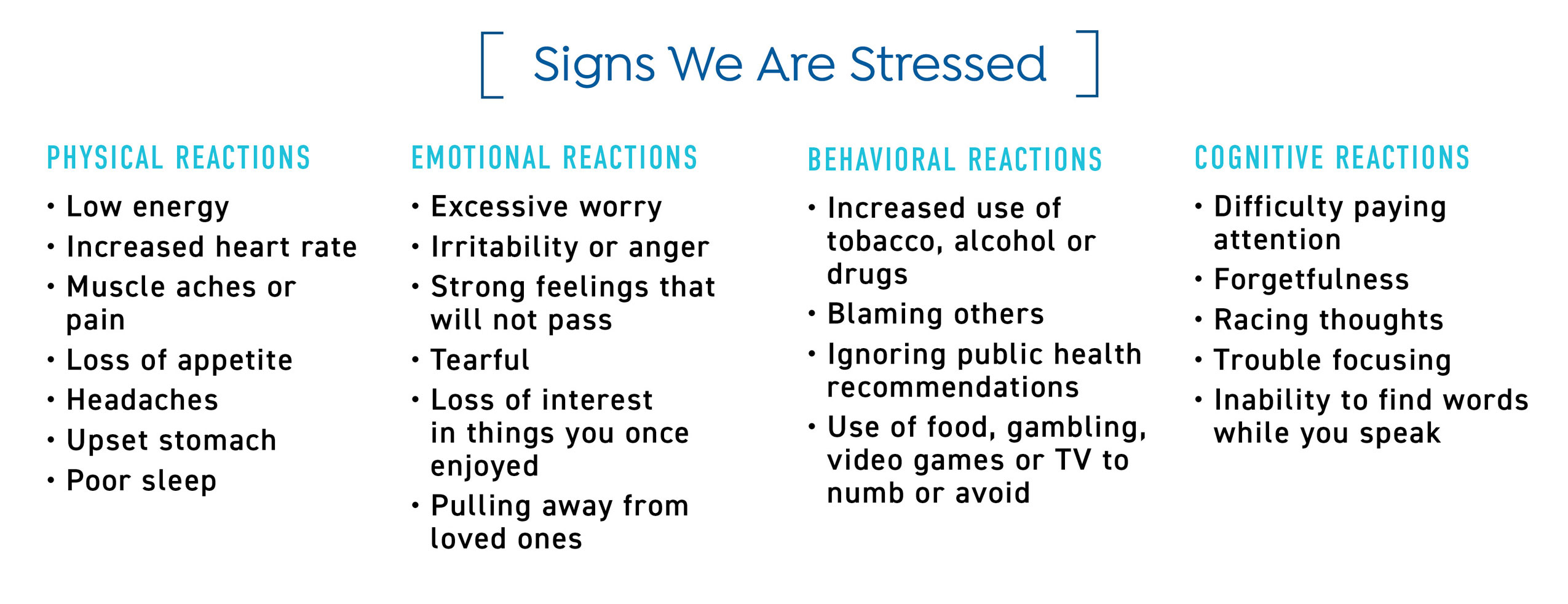Hitting the One Year COVID-19 Wall?
We have been living with the COVID-19 pandemic for over a year now. One year. 365 days. 52,560 minutes. Countless masks and temperature checks. Many people are feeling exhausted. Others express frustration or anger. All of us have likely experienced grief. Grief for those we have lost and grief for the time spent apart from the people who matter most to us. Grief for the funerals, weddings, birthdays and holidays that occurred without the comfort of tradition. Grief over the interruption of work, education, vacations and hobbies. All this grief can manifest itself in increasing stress-related symptoms.

While there is no one-size-fits-all guide for managing grief and stress, we do know that we need healthy coping strategies in order to move forward.
- Get back to basics. Check in on your sleep habits. Remember to eat regular, nutritious meals. Stay hydrated. Try and find time to move — even better if this is outside. Keep a routine schedule. Limit news consumption. Connect with friends and family — even if it is over the phone or virtual. Schedule some fun or relaxing activities.
- Check in on your coping strategies. Consider evaluating the techniques you use to manage stress. If you have not developed a mindfulness, self-compassion or meditation practice, now might be the time to try. Here are some resources others have found helpful:
- Check in on your substance use. At the start of COVID, alcohol sales rose 54% with online orders increasing by over 200% from the previous year (The Nielson Company, 2020). Memes on social media have abounded on how we are getting through this pandemic by using alcohol (it’s wine o’clock somewhere). What can start with one glass every now and then can easily become a second multiple times per week. Check out the national recommendations for healthy alcohol use. If you find that you are drinking more than the recommendations, consider checking out moderation.org for helpful suggestions and support in cutting back to healthy limits. At CentraCare, we offer a variety of ways to help adults and adolescents working on their substance use.
- Reach out for support: When these signs and symptoms last for several days in a row, make you miserable, or cause problems in your daily life so that you find it hard to carry out normal responsibilities, it’s time to ask for help. If you recognize that your child may be struggling, it is important to encourage open conversations about what they are experiencing, provide empathy and support, and connect them to professional care. Your health care team is here to support your needs — both in terms of your preventative health needs, and for acute concerns, including trouble coping with the ongoing pandemic. Here are some additional resources you can connect to:
- Call your primary care provider to ask about appointment options to talk about your anxiety, insomnia, or depression and get advice and guidance.
- Contact your employee assistance program, if your employer has one, and get counseling or ask for a referral to a mental health professional.
- CentraCare offers appointments with a mental health provider without the need for a referral. Video visits also are available. Please call 320-255-6677.
Support Hotlines
- Minnesota Peer Support Connection Warmline: 844-739-6369. Certified peer specialists to listen, provide support and referrals from 5 p.m. to 9 a.m. daily.
- Crisis Text: Text “MN” to 741741.
- Mental Health Minnesota: Find your local crisis line.
- National Suicide Prevention Lifeline: 1-800-273-8255
Finally, remember that we do not grieve what does not matter to us. We feel loss because we have known love. Connect with what matters most to you as we mark a year of pandemic living and have hope for brighter days ahead.
